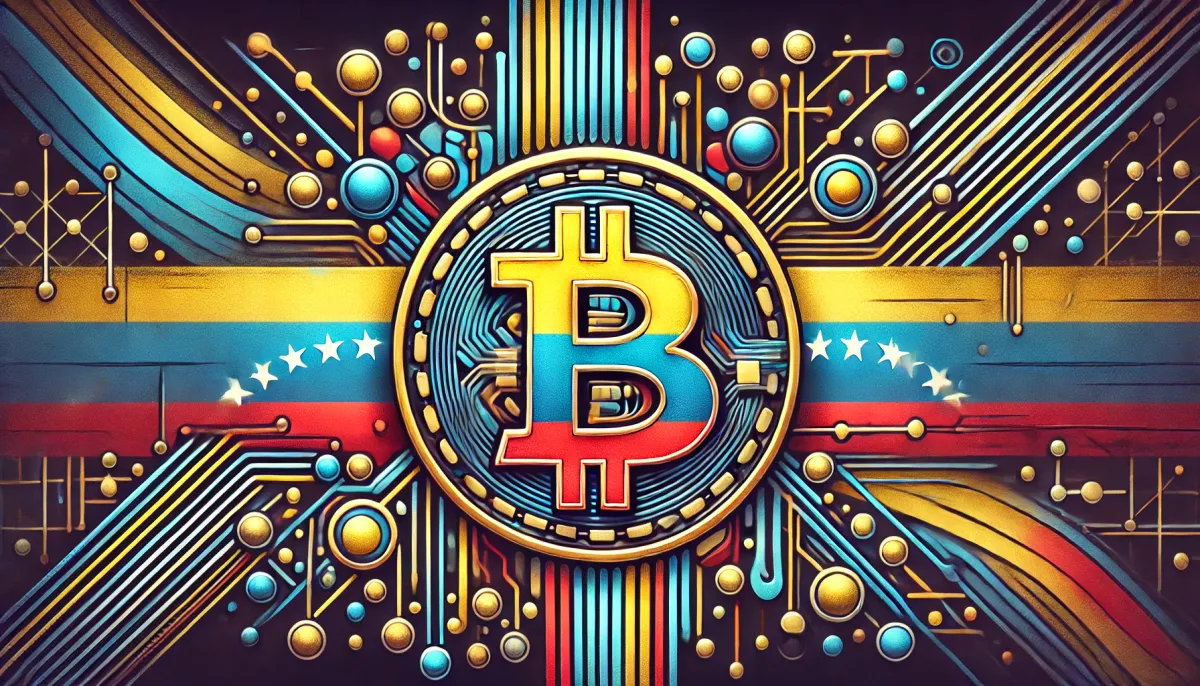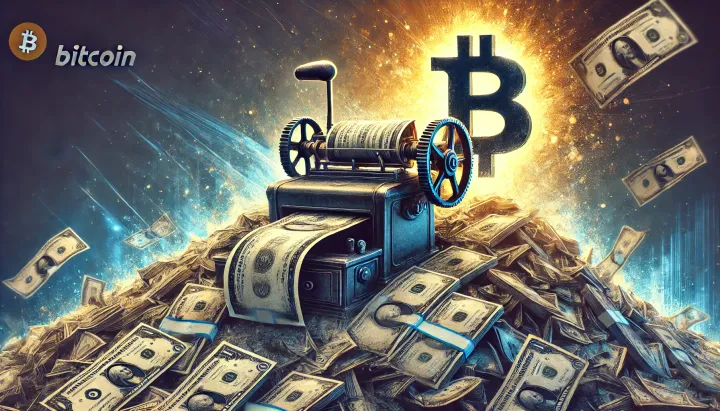Bitcoin and Freedom Tech: Building Resilience in Venezuela
The December 2, 2024 episode of the Human Rights Foundation at PubKey podcast features Jraissati, an economist and human rights advocate, discussing the devastating impacts of hyperinflation, political repression, and the destruction of economic institutions in Venezuela.

- My 'briefing notes' summarize the content of podcast episodes; they do not reflect my own views.
- They contain (1) a summary of podcast content, (2) potential information gaps, and (3) some speculative views on wider implications.
- Pay attention to broadcast dates (I often summarize older episodes)
- Some episodes I summarize may be sponsored: don't trust, verify, if the information you are looking for is to be used for decision-making.
Summary
The December 2, 2024 episode of the Human Rights Foundation at PubKey podcast features Jraissati, an economist and human rights advocate, discussing how Bitcoin and decentralized tools like Nostr empower Venezuelan activists to overcome hyperinflation, financial exclusion, and censorship under the Maduro regime. Economist Jorge Jraissati highlights the importance of Freedom Tech education, diaspora advocacy, and international solidarity in driving democratic change and financial independence.
Take-Home Messages
- Bitcoin as a Lifeline: Enables activists to bypass financial repression and sustain their operations.
- Educational Initiatives Are Vital: Freedom Tech academies can teach activists to use decentralized tools like Bitcoin and Nostr effectively.
- Regulatory Reform Is Essential: Financial exclusion caused by global AML and KYC regulations must be addressed.
- Global Advocacy Matters: Diaspora networks and international organizations play key roles in supporting freedom movements.
- Civil Society Must Lead Change: Empowering grassroots actors is essential to building long-term resilience against authoritarian regimes.
Overview
Venezuela’s fall from prosperity to collapse under authoritarian control sets the stage for this December 2, 2024 podcast, recorded live at Pubkey. Economist Jorge Jraissati outlines the devastating impacts of hyperinflation, political repression, and the destruction of economic institutions. Over 25% of the population has fled the country, and those remaining face extreme poverty and systemic surveillance.
In this challenging environment, Bitcoin has emerged as a critical tool for activists. Its decentralized nature enables them to bypass government surveillance, receive funds, and maintain financial independence. The Maduro regime’s efforts to crack down on Bitcoin mining and exchanges underscore its threat to authoritarian control.
Freedom Tech initiatives offer a path forward. Jraissati emphasizes the need to educate activists on using tools like Bitcoin and Nostr to organize and resist censorship. His proposed Freedom Tech Academy aims to equip 500 Venezuelan activists with the knowledge and resources to leverage decentralized technology effectively.
The podcast concludes by stressing the importance of international solidarity and grassroots empowerment. The Venezuelan diaspora and global human rights organizations can amplify these efforts, but overcoming challenges like military control and censorship will require sustained innovation and advocacy.
Stakeholder Perspectives
- Activists: Require access to decentralized tools for secure communication and financial independence.
- Human Rights Organizations: Seek to amplify local resistance through advocacy and resource allocation.
- Policymakers: Face pressure to reform financial regulations that unintentionally exclude vulnerable populations.
- Diaspora Communities: Act as advocates for international solidarity and channels for resources to support domestic resistance.
Implications
The interview underscores Bitcoin’s potential as a tool for resistance against authoritarian regimes. By bypassing traditional financial systems, activists can sustain their efforts despite repression. However, significant educational gaps must be addressed to maximize Bitcoin's utility for grassroots movements.
For policymakers, the discussion highlights the unintended harm of AML and KYC regulations, which exacerbate financial exclusion in vulnerable regions. Reforms are essential to balance security with inclusion. Similarly, international organizations must recognize the growing role of decentralized technology in advancing human rights and invest accordingly.
Future Outlook
As the Maduro regime continues its authoritarian policies, Bitcoin and decentralized tools will become even more critical for activists and civil society. Expanding Freedom Tech education and promoting grassroots innovation are key to empowering local actors to resist repression effectively.
At the same time, the Venezuelan diaspora and global advocates must intensify their efforts to support change. Policymakers have an opportunity to address the broader challenges of financial exclusion by rethinking regulations and fostering an environment where decentralized tools can thrive.
Information Gaps
- How can Bitcoin infrastructure be optimized to address financial exclusion in autocratic regimes? Exploring this question could lead to scalable solutions for unbanked populations.
- What are the unintended consequences of global AML and KYC regulations on vulnerable populations? Understanding this impact can inform more inclusive financial policies.
- How can decentralized networks like Nostr improve activists' ability to organize under repressive regimes? Investigating this could enhance activists’ operational efficiency and security.
- How can the Venezuelan diaspora contribute to rebuilding the country's economy and civil society? This question examines the role of international advocacy and resource mobilization.
- What privacy-preserving technologies are most effective in countering state surveillance? Answers could guide the development of safer tools for activists operating in hostile environments.
Broader Implications for Bitcoin
Bitcoin as a Lifeline for Activists
Bitcoin demonstrates its utility as a censorship-resistant financial tool for activists operating under authoritarian regimes. In environments where traditional banking systems are weaponized against dissidents, Bitcoin provides a secure and accessible alternative. Its decentralized nature allows funds to flow freely, empowering civil society and enabling grassroots resistance to oppressive policies.
Addressing Financial Exclusion Globally
The challenges faced in Venezuela mirror broader global trends where financial exclusion prevents vulnerable populations from accessing essential services. Bitcoin's peer-to-peer architecture offers a solution by reducing dependency on centralized financial institutions. This approach could reshape how the unbanked participate in the global economy, fostering inclusivity and resilience.
Decentralized Technology in Democratic Advocacy
Decentralized platforms like Nostr have the potential to revolutionize how activists organize and communicate in repressive environments. By circumventing censorship and surveillance, these tools safeguard free speech and enable more effective coordination. As adoption grows, decentralized networks could become critical infrastructure for democratic movements worldwide.
The Role of the Diaspora in Global Advocacy
Diaspora communities, such as those from Venezuela, are uniquely positioned to drive international awareness and support for democratic reform. Their ability to channel resources and influence policy discussions abroad is amplified by tools like Bitcoin. Strengthening connections between diaspora groups and domestic activists could accelerate momentum for change in autocratic nations.



Comments ()